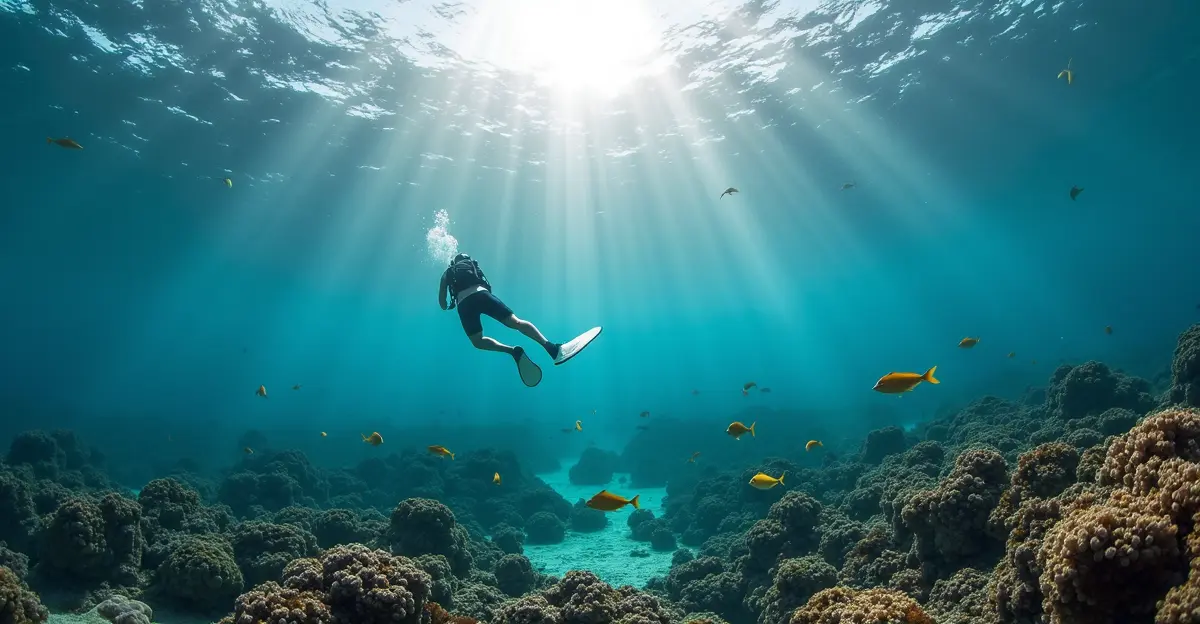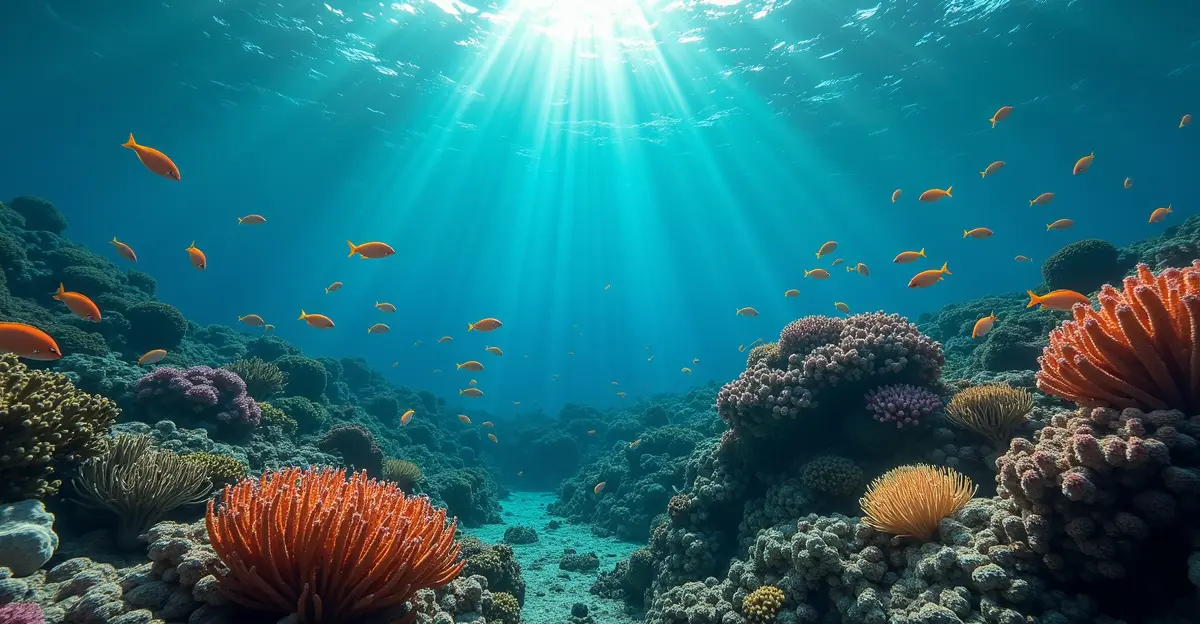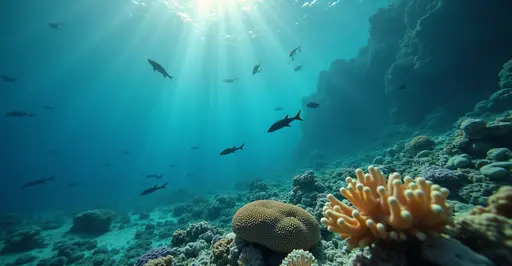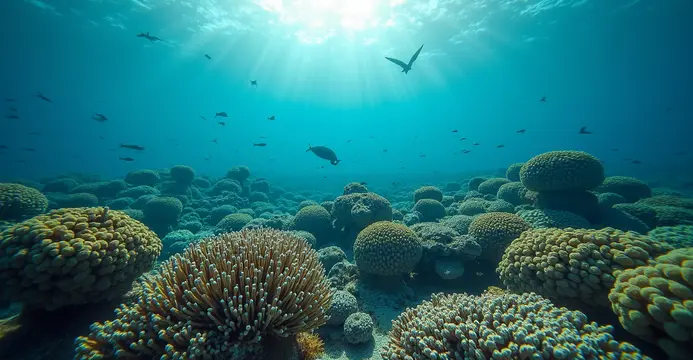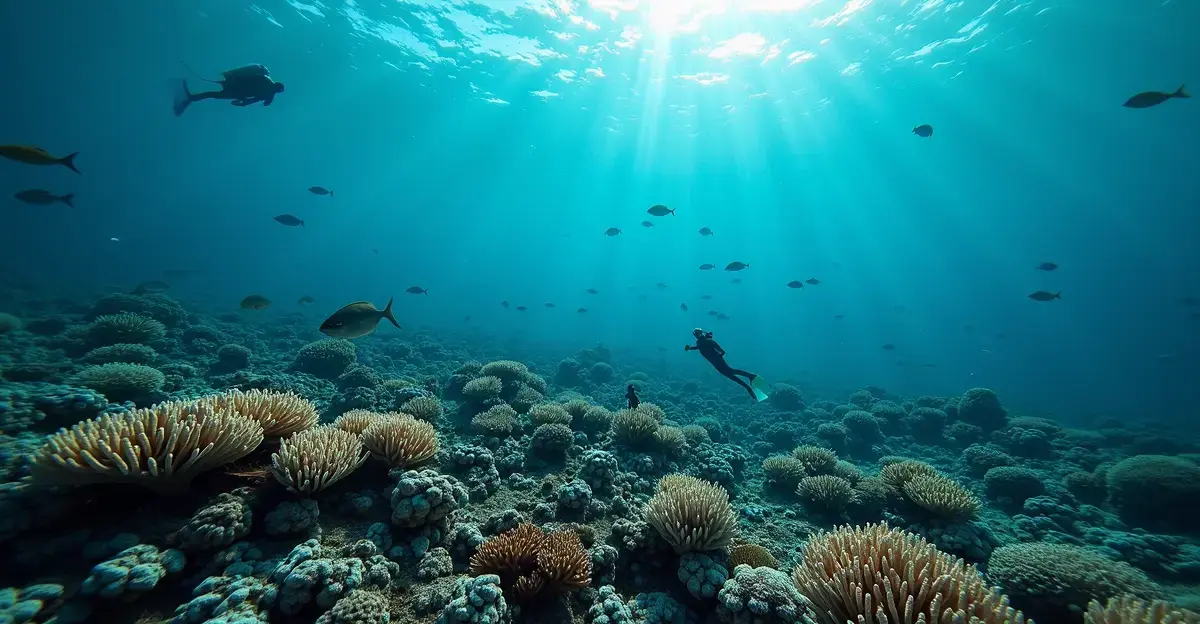Global coral bleaching reaches critical threshold in 2025, with 84.4% of reefs affected. Major funding boosts restoration projects while tourism faces economic losses. Scientists warn of ecosystem collapse without urgent action.
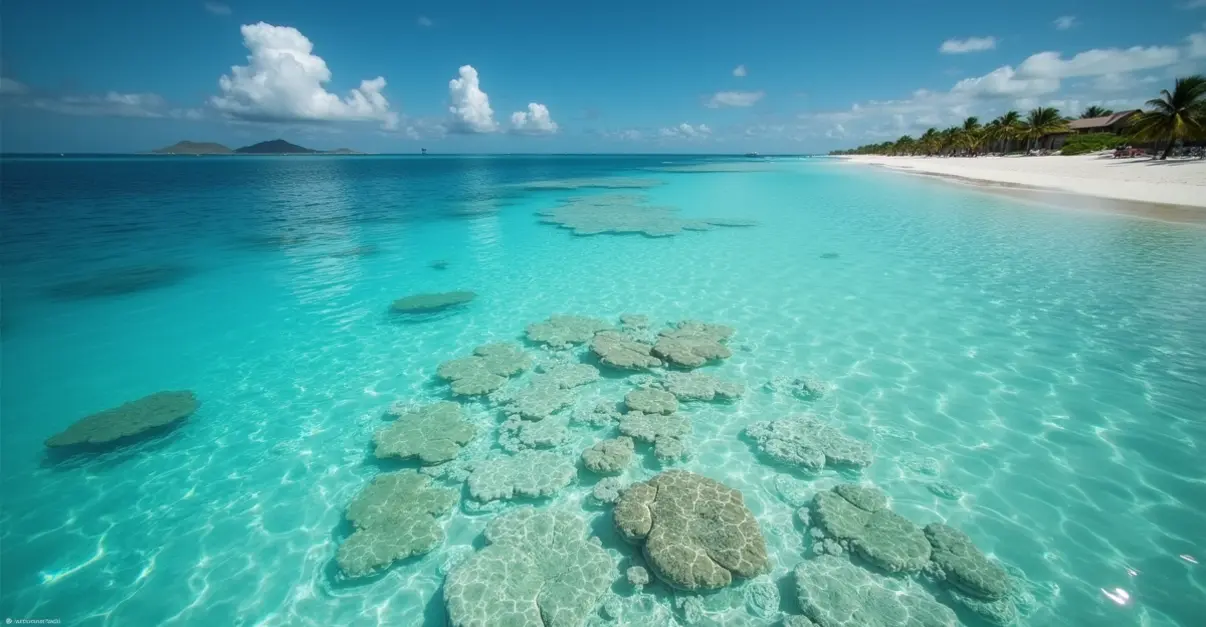
Coral Bleaching Crisis Reaches Tipping Point
Scientists confirmed in October 2025 that the world has reached its first climate threshold with warm-water coral reefs collapsing globally, marking a point of no return. Coral bleaching occurs when stressed corals expel their symbiotic algae (Zooxanthellae), losing both color and their primary food source. 'We're witnessing the collapse of entire reef ecosystems that have existed for millions of years,' says marine biologist Dr. Sarah Chen from the Australian Institute of Marine Science. 'The data shows 84.4% of the world's reef area experienced bleaching-level heat stress from January 2023 to September 2025, with mass bleaching documented in at least 83 countries.'
Monitoring Reveals Alarming Trends
The Australian Institute of Marine Science (AIMS) has documented increasing frequency and severity of bleaching events due to climate change. On the Great Barrier Reef, mass bleaching events have occurred in 1998, 2002, 2016, 2017, 2020, 2022, 2024, and 2025. The 2025 event marked the sixth mass bleaching since 2016 and the second consecutive event following 2024-2025. Aerial surveys revealed widespread bleaching, with 41% of northern reefs showing medium to high bleaching prevalence, though less extensive than 2024.
In Western Australia, 2025 witnessed the worst bleaching event on record, affecting reefs from Ningaloo to Ashmore Reef, with unprecedented marine heatwaves causing the first-ever mass bleaching at Ningaloo since 2011-2013 and the first recorded at Rowley Shoals and inshore Kimberley. 'The primary cause of mass bleaching is increased sea temperatures, measured using NOAA's Degree Heating Weeks, where values above 4 indicate significant bleaching risk and above 8 predict coral mortality,' explains Dr. Chen.
Restoration Projects Receive Major Funding Boost
In response to the escalating crisis, significant funding has been allocated to coral restoration projects. NOAA has recommended over $1 million in funding for three new projects and one ongoing project under the Ruth D. Gates Coral Restoration Innovation Grants program. These initiatives aim to develop novel coral restoration methods to enhance coral resilience against climate change impacts, particularly heat stress.
The new projects include: Arizona State University assessing thermal tolerance of corals in West Hawaiʻi; Maui Ocean Center Marine Institute outplanting thermally tolerant corals at Olowalu Reef on Maui; and Georgia Institute of Technology testing probiotic treatments for coral disease. Nova Southeastern University will continue research on optimal lighting conditions for coral growth.
Meanwhile, the National Fish and Wildlife Foundation (NFWF) has released the Coral Reef Stewardship Fund 2025 Request for Proposals, offering approximately $3.5 million in grants to improve coral reef health. This partnership with NOAA's Coral Reef Conservation Program, USDA NRCS, and Aramco Americas focuses on reducing land-based pollution, advancing coral reef fisheries management, and increasing reef-scale restoration capacity.
Tourism Industry Faces Economic Impact
The economic consequences of coral reef degradation are staggering. Tourism suffers dramatically with global reef tourism valued at $36 billion annually supporting over 1 million jobs, but degraded reefs experience 80-90% reduction in tourist visitation. 'We've seen dive operators in the Caribbean lose up to 70% of their business during severe bleaching years,' reports Maria Rodriguez, a tourism operator from Cozumel, Mexico.
A comprehensive study by The Nature Conservancy and JetBlue reveals that Caribbean coral reefs generate over $7.9 billion annually through reef-adjacent tourism, accounting for 23% of all tourism spending and more than 10% of the region's GDP. The research analyzed reef-adjacent tourism activities that depend on coral reefs indirectly, including beach activities, coastal views, seafood, and tranquil waters for swimming and boating.
Scuba diving alone generates between $8.5 billion and $20.4 billion annually in global economic impact, supporting up to 124,000 jobs worldwide according to a groundbreaking study published in Cell Reports Sustainability. The research, led by Anna Schuhbauer at the University of British Columbia, analyzed data from over 11,590 dive operators across 81 countries.
Future Outlook and Conservation Efforts
The Coral Reef Alliance outlines an ambitious 2025 strategy focused on three key pillars: Assess, Protect, and Restore coral reefs. The organization plans to scale conservation efforts by launching projects in new geographies, strengthening partnerships, and advancing climate adaptation science.
Protection initiatives include rezoning marine protected areas in the Western Caribbean, bolstering enforcement of marine protections, and enacting climate-smart policies. Restoration efforts will focus on ecosystem restoration in Hawai'i, securing $1.9 million for wastewater management to treat 200 million gallons annually, and advocating for the Mesoamerican Reef to be designated a Particularly Sensitive Sea Area.
'While the situation is dire, we still have time to act,' emphasizes Dr. Chen. 'Aggressive action and improved local management can help some reefs survive. We need systemic change through sustainable practices, increased government action, and public support to build a new symbiotic relationship with ocean ecosystems before it's too late.'
The comprehensive approach aims to create climate-resilient coral ecosystems through community-driven interventions, scientific research, and sustainable management practices. As monitoring continues to reveal the extent of bleaching damage, restoration funding and tourism industry adaptation will be crucial for preserving these vital marine ecosystems.

 Nederlands
Nederlands
 English
English
 Deutsch
Deutsch
 Français
Français
 Español
Español
 Português
Português




